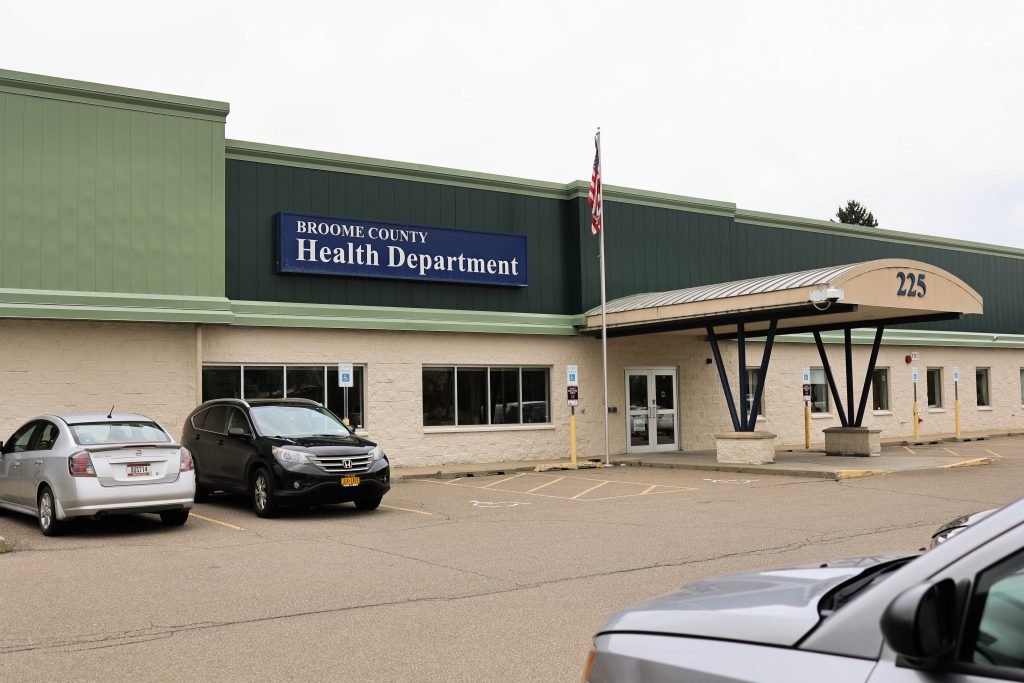Broome County has received about $1.6 million in settlement money from pharmaceutical manufacturers and distributors to aid in combating the opioid epidemic.
In 2019, New York State Attorney General Letitia James sued pharmaceutical manufacturers and distributors like Walmart, CVS and Walgreens, alleging improper practices that exacerbated the opioid crisis. One of the first to sign onto James’s lawsuit, Broome County also filed its own lawsuit against Purdue Pharma L.P. and Janssen Pharmaceuticals, two large opioid manufacturers in 2017. Of the cases settled in 2022, the settlement will go toward programs that help those in treatment for addiction, patients in recovery and harm reduction and community education efforts.
Broome County Executive Jason Garnar, a supporter of the original 2017 case, outlined his plans to distribute the funds to community organizations.
“We will be using every single penny of this settlement money to address this crisis from every angle,” Garnar wrote in an email. “Education, prevention, intervention, harm reduction, treatment and recovery. While it will never bring back the people we’ve lost, it will help us save lives.”
The Opioid Annual Data Report for 2022, released by The New York State Health Department, revealed the Southern Tier had one of the highest rates of opioid overdose-related deaths in the state. Locally, Broome County had the second-highest rate of overdose deaths among counties with 20 or more deaths in 2020, when data was adjusted for age and population.
So far, James has won $2.6 billion for New Yorkers affected by opioids, from which $4.8 million was awarded to the Southern Tier. According to a Broome County press release, the funds have been distributed to The Addiction Center of Broome County, The Hope Foundation of Binghamton, Mothers and Babies Perinatal Network of South-Central New York, Our Lady of Lourdes Memorial Hospital, Inc., Rural Health Network of South-Central New York, Truth Pharm and United Health Services.
Truth Pharm, a nonprofit organization dedicated to reducing harms caused by substance abuse, offers direct services that educate community members, prevent overdoses and provide personal care items for those coming from treatment or incarceration. Alexis Pleus, Truth Pharm’s executive director, explained how the money will help the organization directly support those struggling with addiction.
“[We] received $150,000 in desperately needed funding,” Pleus wrote in an email. “A portion of it will go toward our direct client services, which is vitally important, as we have considered closing our doors to direct client services for a while now, because we haven’t had funding for them since September 2020. The rest will go toward supporting families who have lost a loved one and families who have a loved one still living and struggling with substance use or recovery.”
Pleus expressed worry over for-profit organizations benefiting from future settlement funding.
“This funding is vitally important to saving lives,” Pleus wrote. “We are concerned that our county is now opening the funding up to ‘for-profit’ businesses, especially since ‘for-profit’ businesses are what got us here in the first place. We are also concerned that the second round of funding is not available to organizations that got funding in the first round. 12-month funding is an ineffective way to support organizations on the front line.”
The billions secured by James will be paid out to various institutions over the next 18 years. Her lawsuit against Teva also put barriers into place to prevent opioid manufacturers and distributors from misrepresenting their products. These restrictions include bans on high-dose opioids and marketing opioids, as well as restrictions on political lobbying.
Garrett Lamouree, an EMT at Harpur’s Ferry and a junior majoring in biology, described how he thought settlement funds should be used.
“I think that a lot of money should go back into public health systems to correct these issues,” Lamouree said. “We give away Naloxone here for people who need it. I think it’s fair that these companies should pay for the damage they caused.”
Yash Bitra, a senior majoring in computer science, acknowledged the negative impact of drugs and the responsibility of pharmaceutical companies to hold themselves accountable for their actions.
“I definitely think drugs are one of the main problems in society today,” Bitra said. “If companies caused doctors to overprescribe opioids, then they deserve to pay for the damages. I think it’s good that the money is going to organizations that can give people treatment.”



